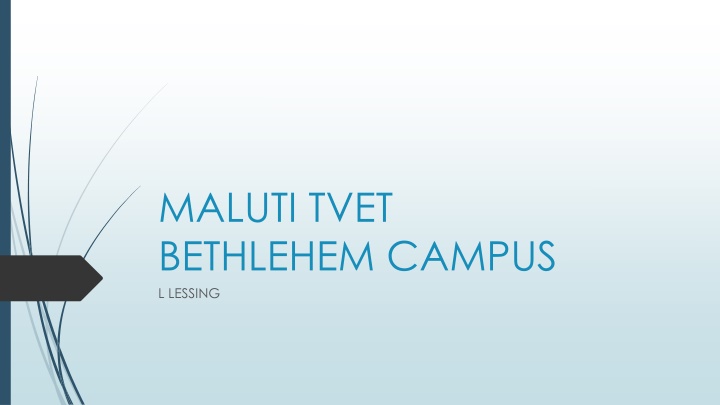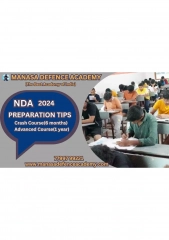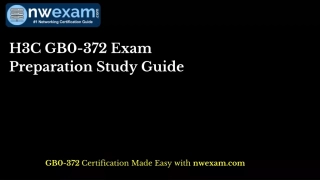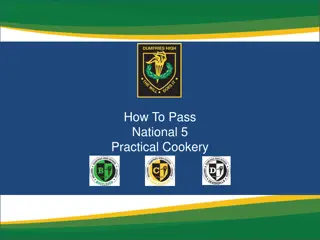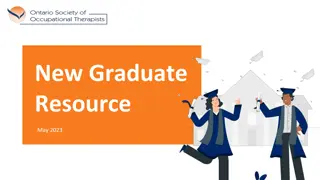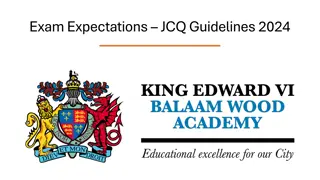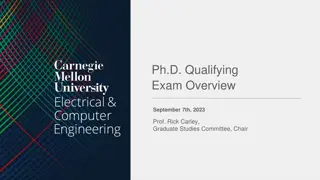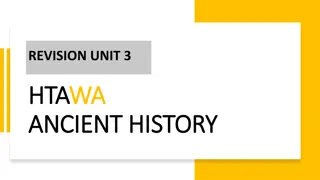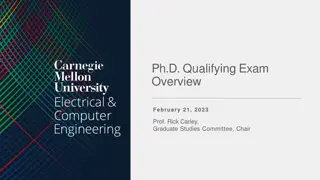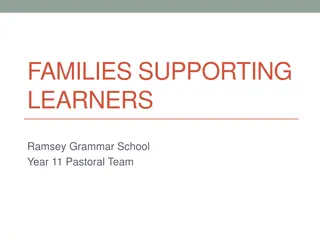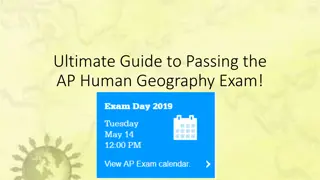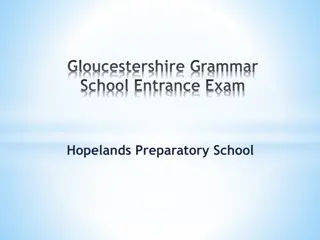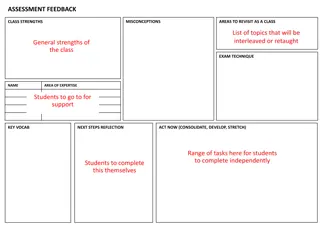Effective Exam Preparation Tips
Tips and techniques for successful exam writing, including study methods, time management, common errors to avoid, and preparation hints for before and on the day of the exam. Learn how to manage your time wisely, engage with study material, avoid cramming, get enough rest, and stay organized to ace your exams.
Download Presentation

Please find below an Image/Link to download the presentation.
The content on the website is provided AS IS for your information and personal use only. It may not be sold, licensed, or shared on other websites without obtaining consent from the author.If you encounter any issues during the download, it is possible that the publisher has removed the file from their server.
You are allowed to download the files provided on this website for personal or commercial use, subject to the condition that they are used lawfully. All files are the property of their respective owners.
The content on the website is provided AS IS for your information and personal use only. It may not be sold, licensed, or shared on other websites without obtaining consent from the author.
E N D
Presentation Transcript
MALUTI TVET BETHLEHEM CAMPUS L LESSING
EXAMINATION STUDY TIPS Think about it What is the purpose of writing a test or exam? Are some study techniques more effective than others? What is the difference between wisdom & knowledge?
Study techniques & exam writing skills What are skills & techniques? Skill = an ability developed through practice & experience. Technique = system of using skills to get a task done. Study goals: Understand & utilise. Remember & reproduce. Absorb & apply.
Good study techniques Ways to study for an exam: 1 Review 2 Read 3 Underline 4 Question 5 Analyse 6 Summarise 7 Create 8 Use memory 9 Interact 10 Test yourself
Good exam writing skills Plan your time. Identify what is being asked: Read the question a few times. Underline question words. Check how much is required: Read the question carefully. Check the mark allocation. Clearly present what is being asked: Use exact numbering. Leave 2 3 lines between questions. Use full sentences for paragraphs & essays. Structure longer answers Present answers in an examiner-friendly way: Try to write neatly. Try to answer questions in the correct order (leave space & come back if you re unsure). Do all planning on the last page & draw a line through it once you re done.
Typical exam writing errors Exam errors include: Poor planning & preparation Anxiety & stress Distractedness Poor writing style Wrong & poor content Carelessness Wordiness Cheating.
Hints for preparing for the exam Manage your time wisely. Choose a suitable place to study. Engage with the content.
Hints for the day before the exam Don t cram. Get enough sleep. Check the details (date, time, venue & subject). Confirm your transport. Pack your belongings.
Hints for the day of the exam Drink enough water. Eat a good breakfast. Arrive with time to spare. Go to the toilet.
Hints for during the exam Keep your desk clear. Be considerate. Be respectful. Keep calm. Tidy up. Exit quietly. Keep your desk clear. Be considerate. Be respectful. Keep calm. Tidy up. Exit quietly.
Words used in exam questions Verbs used in exam questions: Advise (suggest; recommend): say what should be done & why Analyse (examine; inspect): break down into main parts Calculate (solve; work out): work out number or value Comment (discuss; interpret; point out): state a fact or opinion Compare (distinguish; relate to): see similarities & differences. Contrast (differentiate; show differences): compare differences between two things Create (design; draw; invent): use information to make something new Define (give the meaning of; set out; specify): give the exact meaning Demonstrate: use evidence to show that something is true
Words used in exam questions Differentiate (contrast; distinguish): show the difference between. Discuss (consider; elaborate on; examine; explore): describe, analyse, compare, evaluate then give a conclusion Evaluate (assess; interpret; reflect on): think carefully & give an opinion Explain (clarify; illuminate; spell out): make something simple to understand Identify (classify; find; indicate; name; specify): show the issue. Illustrate (show): explain using examples or a diagram/chart/table
Words used in exam questions Justify (defend; motivate): give good reasons for an opinion or choice List (itemise; name; write down): write single words/phrases/short sentences below each other & bullet or number them Match (find corresponding; join): find two things that go together. State (formulate; mention): give facts/main points Suggest (advise; recommend): give advice/causes/reasons Tabulate (create a table; organise): arrange figures in table for easy reading Track (trace): give stages of a process.
GOOD LUCK STAY CALM AND DO YOUR BEST
